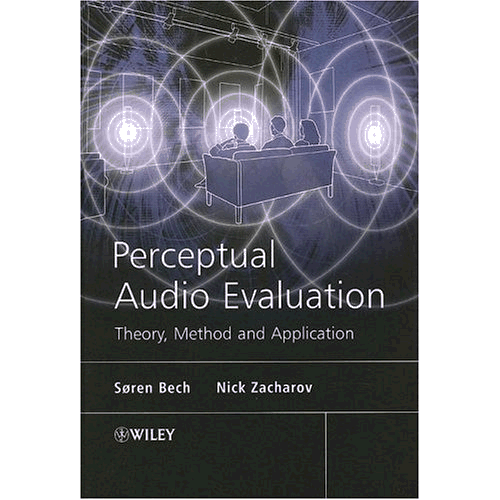
A growing number of new technologies (e.g. low bit-rate coding) are based on specific properties of the auditory system, which are often highly non-linear. This means that the auditory quality of such systems cannot be measured by traditional physical measures (such as distortion, frequency response etc.), but only by perceptual evaluations in the form of listening tests.
Perceptual Audio Evaluation provides a comprehensive guide to the many variables that need to be considered before, during and after experiments. Including the selection of the content of the programme material to be reproduced, technical aspects of the production of the programme material, the experimental set-up including calibration, and the statistical planning of the experiment and subsequent analysis of the data.
Perceptual Audio Evaluation:
Provides a complete and accessible guide to the motives, theory and practical
application of perceptual evaluation of reproduced sound.
Discusses all the variables of perceptual evaluation, their control and
their possible influence on the results.
Covers in detail all international standards on the topic.
Is illustrated throughout with tables, figures and worked solutions.
Perceptual Audio Evaluation will appeal to audio and speech engineers as well as researchers in audio and speech laboratories. Postgraduate students in engineering or acoustics and undergraduate students studying psychoacoustics, speech audio processing and signal processing will also find this an essential reference.
